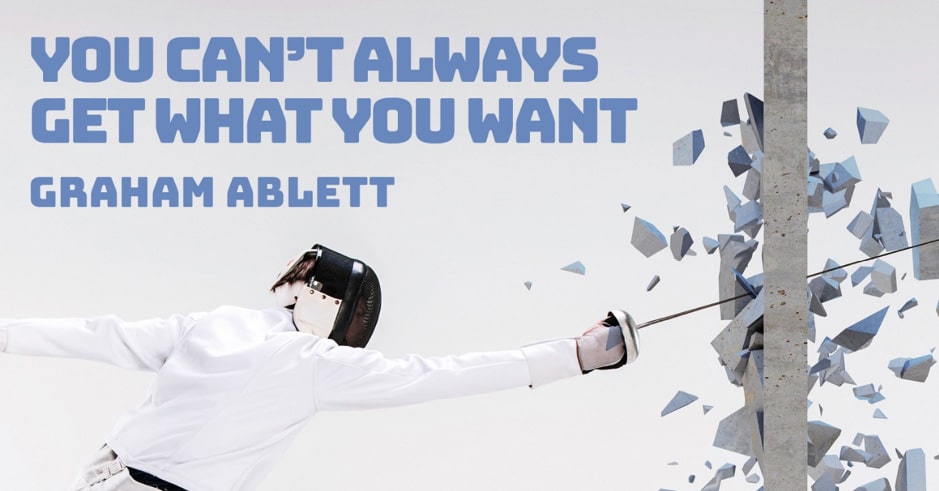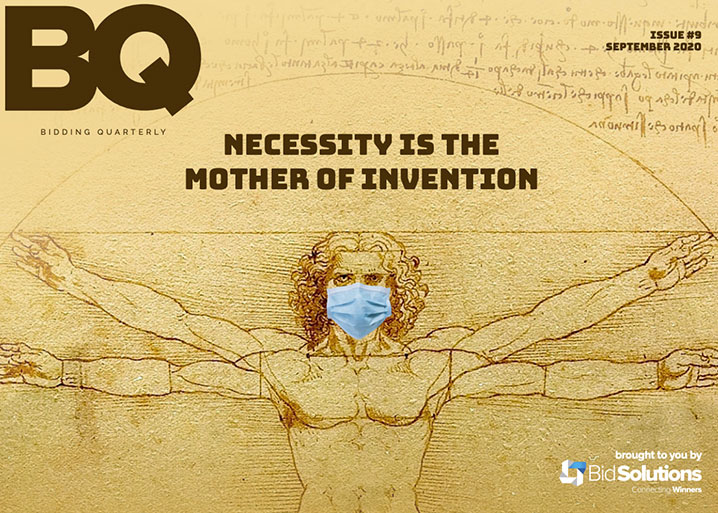
Adversity will mean so many different things to different people. We live in a world where people have to face much more adversity than me. So, when Martin asked me to think about the topic, I found it quite a challenge as generally I think I’ve been dealt a pretty good hand. Great family, amazing friends, brilliant colleagues. But like most people, I have faced some tough challenges along the way, so here goes…
If I think back to my early career, shortly after finishing university, I had a real struggle balancing everything going on in my life. It led to a bout of ME (also known as Chronic Fatigue Syndrome) – complete and utter physical exhaustion. This was tough to handle and required more than a simple fix.
I’d got my engineering and business degree from university in London, which was great – but to be honest, it wasn’t my main area of focus at that time of my life. You see I’d only really gone to London because I wanted to go to the best fencing clubs in the country. Fencing was my passion. By the time I moved down south I’d been ranked number one in the UK at under 14 and 15 age group levels and had won the national under 17 championships. This was a decent track record considering most fencers in the UK come from fee-paying schools where the children are taught fencing as part of their physical education. I attended fairly normal, publicly-funded schools in the East Midlands – not considered a hotbed for fencing!
At 17 years old I got the best home nation result in my first under 20 World Cup event. The stars were aligning for my next goal – qualifying for the under 20 World Championships. Four fencers qualified each year. The problem was I came fifth that year and each year thereafter – narrowly missing out time and time again. My final year was the hardest to take. I had the best international results but had struggled to translate that form into the domestic tournaments. After this happened, the powers that be changed the weightings to put more emphasis on international results. But of course, that was no conciliation for me. I was truly devastated. Nowadays I realise this had a big impact on my mental health and wellbeing.
Moving on, I was now in the seniors. More competition, but the same qualification with the top four in the rankings going to the World Championships. It wasn’t easy coming off a disappointing end to my junior career and then suddenly fighting Olympians and veterans of many World Championships, plus everyone else. But over a few seasons my renewed focus on domestic events and continued training regime regularly got me into the country’s top ten. I got a bronze in the individual national championships and made the quarters on several occasions. Twice I was a member of the national club championship winning team.
One year I found myself in great form. A year with two opportunities: qualification for the World Championships and the Commonwealth Fencing Championships. Coming third in the first two domestic events got me in to qualification spots for World Cup events, where I could get additional qualification points. But I then had some of, quite possibly, the biggest setbacks of my fencing career:
- Competition was harder than ever, with lots of people vying for those team slots
- Twice travel problems meant I failed to get to World Cup events and missed out on qualification points
- I was also starting to feel the pressure at work as I really started to get into my bidding career and was feeling the strain
- I had the stress of being a key witness in a crime that took place in my shared house in London – a very nasty, racially motivated, aggravated burglary with the intent to cause actual bodily harm
No surprise, this took its toll. At one point I caught what I thought was an innocuous cold, which ended up as a virus and was later diagnosed as ME. I couldn’t really work or train as a result. The impact: I ended the year ranked just outside the qualification for the Worlds again. But this time there was a silver lining. I had finished fourth in the English rankings, which meant Commonwealth qualification and a trip to Malaysia. The incentive to get my body and head back was there, and I enjoyed a fabulous two weeks, culminating in helping our team battle through each round to the final, where we won gold.
What did I learn?
You can’t always get what you want, even if you really want it. Always give things your best shot, then you can’t be too self-critical. There will always be learnings, but if you know, in your heart of hearts, that you did your best then you really can’t ask for more.
You can’t control everything, so don’t beat yourself up if something that’s not in your plan impacts your goal. You need to be able to adapt and adjust all the time. Don’t let change hinder you. Deal with it and revise what you need to do accordingly.
It’s okay to be disappointed. Take the knocks on the chin. Think hard about what happened and why, and how you could do things differently next time. Remember that a tough goal usually requires a long, hard journey that has lots of small steps along the way. Make sure you acknowledge the achievements made on these steps as there can be lots of positives hidden in there. Remembering those can make disappointments more palatable.
Mostly, hard work and determination get you a long way. You need the motivation of a goal to stay focused. And, as we bidders know, everything is easier if you can make it fun.
This article was written by Graham Ablett.
Graham helps clients to win specific opportunities as well as implementing effective and efficient proposal processes. He is a former board member of APMP in the UK, holding APMP Professional status, and is an APMP Approved Trainer.

